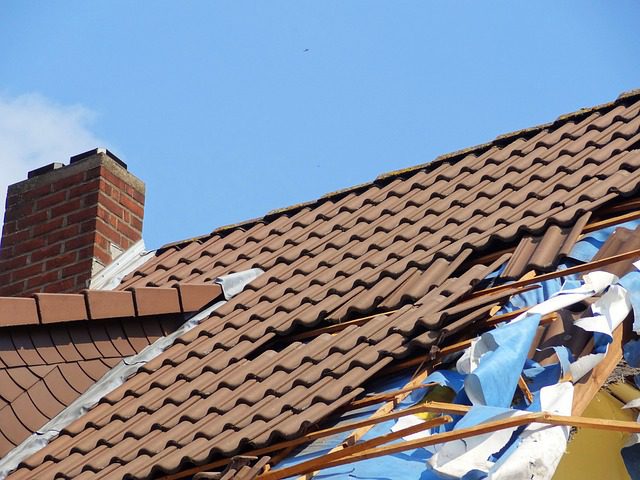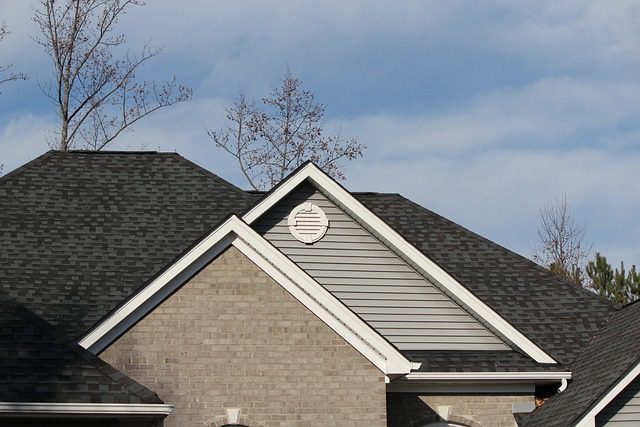Deciding whether to repair or replace your roof can be challenging, as it involves assessing the extent of damage, the age of your roof, and the costs involved.
In this comprehensive article, we will explore the key factors to consider when deciding between roof repair and replacement so that you can make the best decision for your home. We’ll talk about the following factors and tips:

The first step in determining whether to repair or replace your roof is to assess the extent of the damage. Some common roof issues and their potential solutions include:
If only a few shingles are missing or damaged, you can likely repair the affected area without replacing the entire roof. If a significant number of shingles are damaged or curling, buckling, or losing granules, it might be a sign that the roof is reaching the end of its life, and a complete replacement may be necessary.
Small leaks can often be fixed with patching or sealing, but widespread or persistent leaks may require a roof replacement. If you notice water stains on your ceilings or walls, addressing the problem quickly is essential to avoid further damage and mold growth.
A sagging roof may indicate structural issues, such as problems with the roof decking or support system. In these cases, repairs to the underlying structure may be required, and a roof replacement might be necessary to ensure the integrity of your home.
If caught early, localized mold or rot can be repaired, but extensive damage may require a complete roof replacement. Mold and rot can compromise the integrity of your roof, and ignoring the problem can lead to more significant issues.
The age of your roof plays a significant role in deciding whether to repair or replace it. Considering the age of your roof is important for maintaining your home's value, ensuring proper maintenance, and avoiding costly repairs or insurance issues.
Most roofs have a lifespan of 20-30 years for asphalt shingles, 40-70 years for metal roofs, and 50-100 years for tile or slate roofs. If your roof is nearing the end of its expected lifespan and showing signs of wear, it may be more cost-effective to replace it rather than invest in extensive repairs.
Also, if you're planning to sell your home, the age and condition of the roof can impact the resale value. A well-maintained total replacement can increase the value of your home, while an older, damaged roof could decrease it.
Comparing repair costs versus replacement can guide your decision. In some cases, repairing a roof may be more cost-effective in the short term, but if you're likely to face ongoing issues and additional repair expenses, replacing the entire roof may make more sense.
Request quotes from professional roofing contractors to understand the costs involved and make an informed decision based on your budget and the expected return on investment.
The cost of a new that costs $15,000 in Huntsville may cost $20,000 in Los Angeles. So it also depends on your local market.

A new roof can offer several benefits, including improved energy efficiency, increased home value, and enhanced curb appeal. When considering whether to repair or replace your roof, consider these potential benefits and how they may offset the initial roof replacement costs.
Here are some of the key benefits of a new roof:
A new roof, with modern materials and proper insulation, can help regulate your home's temperature more effectively, keeping it cooler in the summer and warmer in the winter. This improved energy efficiency can lower utility bills and create a more comfortable living environment.
A new roof can significantly boost your home's value, making it an attractive investment for homeowners planning to sell in the near future. Potential buyers often appreciate the peace of mind with a recently installed roof, knowing they won't have to deal with roof-related issues for many years.
A new roof can dramatically enhance your home's appearance, giving it a fresh, updated look. This improved curb appeal can make your home stand out in your neighborhood and catch the eye of potential buyers.
Modern roofing materials are often more durable and long-lasting than older materials, so investing in a new roof can provide a longer-lasting solution. This extended lifespan can save you money in the long run, as you'll avoid the costs associated with frequent repairs or premature replacement.
A new roof can offer better protection against the elements, including heavy rain, strong winds, hail, and snow. This improved protection can help prevent leaks, water damage, and other issues that can compromise the integrity of your home.
A new roof typically requires less maintenance than an older one, as modern materials are often more resistant to damage, mold, and rot. This can save you time and money on upkeep and repairs.
A new roof can also provide better protection against fire, as modern roofing materials often come with higher fire ratings than older materials. This added safety could give you peace of mind, knowing your home is better equipped to withstand fire hazards.
When installing a new roof, you can choose from a wide range of materials, styles, and colors that best suit your home's design and personal preferences. This allows you to customize your roof to create your desired look and functionality.
A professional roofing contractor can assess the condition of your roof, provide recommendations based on their expertise, and help you determine whether repair or replacement is the best course of action.
Here are a few reasons why consulting with a professional roofing contractor before deciding to replace or repair your roof is important:
. They have the expertise to identify underlying issues that may not be immediately visible to the untrained eye. This allows them to provide you with an accurate diagnosis and recommendations for repair or replacement.
Consulting a professional roofing contractor before repairing or replacing your roof can save you time, money, and hassle. They can help you make informed decisions, select suitable materials, and ensure the work is done safely and to code.

Your homeowner's insurance policy may cover some or all of the costs associated with repairing or replacing your roof, depending on the cause of the damage and your policy's terms. Before deciding, consult with your insurance provider to understand your coverage and how it may affect your decision to repair or replace your roof.
Here are some reasons why it's essential:
Consulting with your insurance provider before deciding to repair or replace your roof can help you understand what is covered by your policy, estimate costs, navigate the claims process, and meet any requirements necessary for coverage.
Deciding whether to repair or replace your roof requires careful consideration of several factors, including the extent of damage, the age of your roof, costs, potential benefits, professional recommendations, insurance coverage, and timing.
Investing in a new roof can offer numerous benefits, including improved energy efficiency, increased home value, enhanced curb appeal, extended lifespan, better protection, reduced maintenance, improved safety, and customization options. These benefits make a new roof a valuable investment for any homeowner, especially those planning to sell their home in the near future or looking to improve their home's overall functionality and appearance.
At the end of the day, whether you should have your roof fixed or replaced will depend on your choice and your situation. We sincerely hope that the considerations we discussed above will aid your ability to make an informed choice for your home.